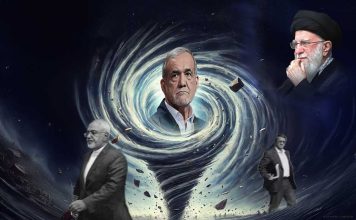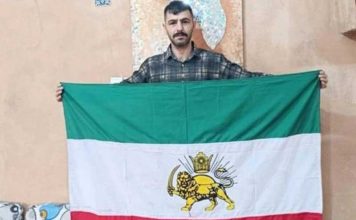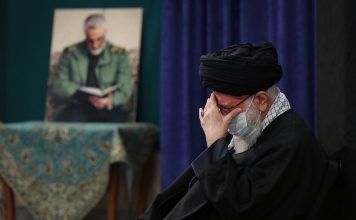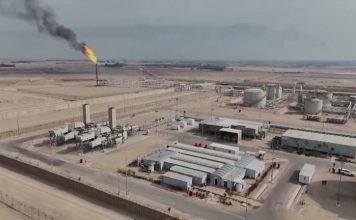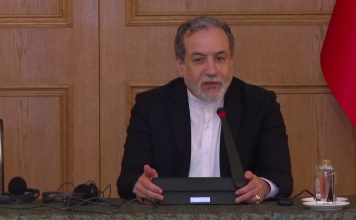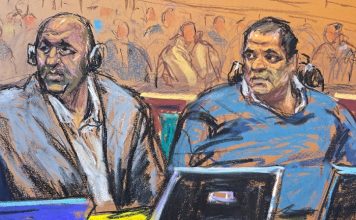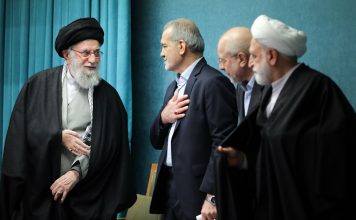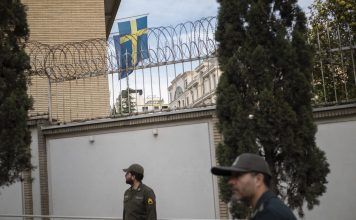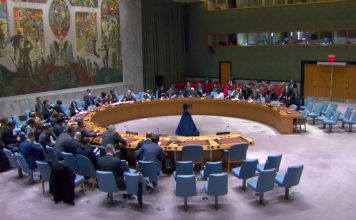By Maya Gebeily
BEIRUT, Oct 8 (Reuters) – Israel’s defence minister said on Tuesday it appeared the replacement for slain Hezbollah leader Sayyed Hassan Nasrallah had been “eliminated”, in what would be another big blow for the Iran-backed group in Lebanon.
Defence Minister Yoav Gallant made the announcement about Hashem Safieddine as Israel began ground operations in southwest Lebanon, expanding its incursions to a new zone, and as Hezbollah left the door open to a negotiated ceasefire.
Safieddine, a top Hezbollah official, was widely expected to succeed Nasrallah. Safieddine has not been heard from publicly since an Israeli airstrike late last week.
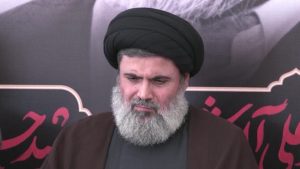
“Hezbollah is an organization without a head. Nasrallah was eliminated, his replacement was probably also eliminated,” Gallant told officers at the Israeli military’s northern command centre, in a brief video segment distributed by the military.
“There’s no one to make decisions, no one to act,” he said, without providing further details.
Like Nasrallah, Safieddine is a cleric who wears a black turban denoting descent from Islam’s Prophet Mohammed. His physical resemblance to Nasrallah, who led the Lebanese Shi’ite group for more than three decades, has also marked him as a favourite for the succession.
Safieddine was not attending the meeting in Beirut’s southern suburbs on the evening of Sept. 27 that Israel attacked with an air strike, killing Nasrallah.
But he has been a prime target for Israel, nurtured as an influential leader and potential heir. As head of Hezbollah’s executive council, he has overseen the group’s political affairs, while also sitting on the Jihad Council, which manages its military operations.
CEASEFIRE EFFORTS
In a televised speech shown before the release of the video with Gallant’s announcement, Hezbollah’s deputy leader Naim Qassem said he supported attempts to secure a truce, and for the first time did not mention the end of war in Gaza as a pre-condition to halting combat on the Lebanon-Israel border.
Qassem said Hezbollah supported attempts by Speaker of Parliament Nabih Berri, a Hezbollah ally, to secure a halt to fighting, which has escalated in recent weeks with the Israeli ground incursions and the killing of top Hezbollah leaders.
“We support the political activity being led by Berri under the title of a ceasefire,” Qassem said in his 30-minute televised address.
Trauma of Oct 7 Attack Still Hangs Over Israel as War Spreads
It was not clear whether this signalled any change in stance, after a year in which the group has said it is fighting in support of the Palestinians during the Israel-Hamas war in Gaza, and would not stop without a ceasefire there.
Speaking from an undisclosed location, Qassem said the conflict with Israel was a war about who cries first, and Hezbollah would not be the first to cry. The group’s capabilities were intact despite “painful blows” from Israel.
“Dozens of cities are within range of the resistance’s missiles. We assure you that our capabilities are fine,” said Qassem.
His televised address was shown 11 days after the killing of Nasrallah, the most devastating setback Israel has dealt its foe in decades. Qassem said the group would elect a new secretary general and announce it once it has been done.
Israel is yet to advance after ground clashes that broke out in south Lebanon a week ago, he said.
“In any case, after the issue of a ceasefire takes shape, and once diplomacy can achieve it, all of the other details can be discussed and decisions can be taken,” Qassem said. “If the enemy (Israel) continues its war, then the battlefield will decide.”
ANALYSIS: What Is Iran Regime-Backed Hezbollah and What Is Its Role in Lebanon?
WARNING FROM IRAN
The regional tensions triggered a year ago by Palestinian armed group Hamas’ attack on southern Israel have spiralled in recent weeks into a series of Israeli operations by land and air against Lebanon. On Oct. 1, Iran, sponsor of both Hezbollah and Hamas, fired missiles at Israel.
Iran warned Israel on Tuesday against any retaliatory attacks. Foreign Minister Abbas Araqchi said any attack on Iran’s infrastructure will be met with retaliation.
Araqchi will visit Saudi Arabia and other countries in the Middle East starting on Tuesday to discuss ways “to prevent the shameless crimes of the Zionist regime in Lebanon in continuation of the crimes in Gaza”.
Sources have told Reuters that Gulf Arab states have sought to reassure Tehran of their neutrality in the conflict.
The area of Israeli operations in Lebanon has been expanding. The Israeli military said it was conducting “limited, localised, targeted operations” in Lebanon’s southwest, having previously announced such operations in the southeast.
Israel’s military struck Beirut’s southern suburbs overnight again and said it had killed a figure responsible for Hezbollah’s budgeting and logistics, Suhail Hussein Husseini, the latest in a strong of assassinations of some of the group’s top officials.
(Reporting by Elwely Elewelly in Dubai and Maya Gebeily in Beirut and Benoit Van Overstraeten in Brussels and Emma Farge in Geneva; Writing by Michael Georgy; Editing by Clarence Fernandez, William Maclean, Peter Graff and Timothy Heritage)


